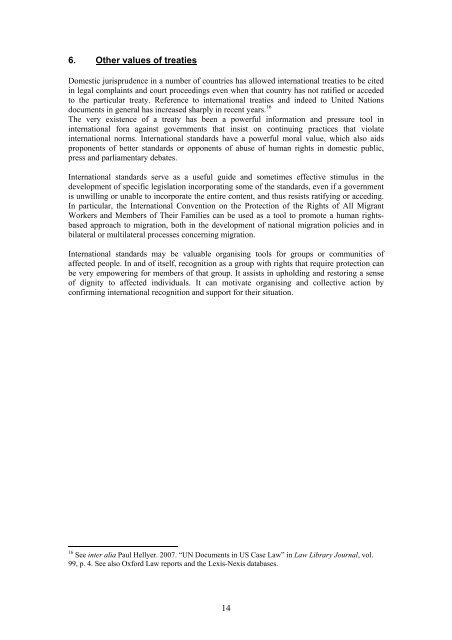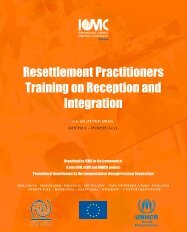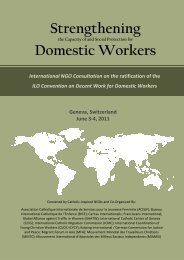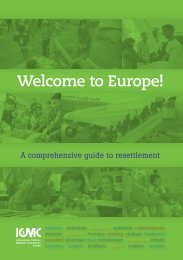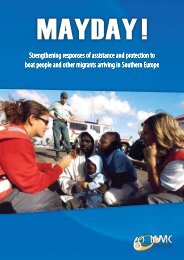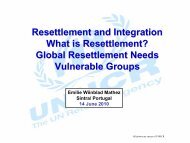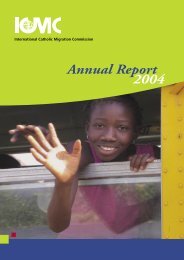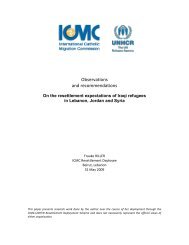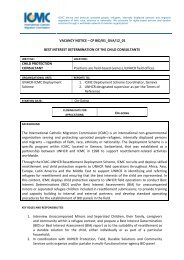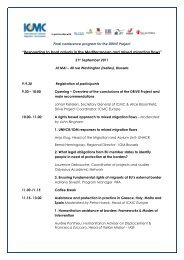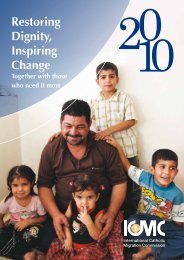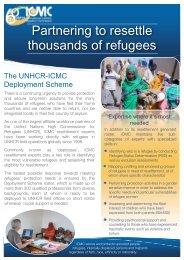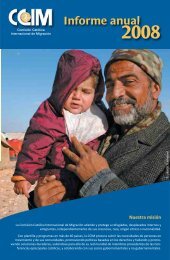Guide on ratification of the Migrant Workers Convention
Guide on ratification of the Migrant Workers Convention
Guide on ratification of the Migrant Workers Convention
You also want an ePaper? Increase the reach of your titles
YUMPU automatically turns print PDFs into web optimized ePapers that Google loves.
6. O<strong>the</strong>r values <strong>of</strong> treaties<br />
Domestic jurisprudence in a number <strong>of</strong> countries has allowed internati<strong>on</strong>al treaties to be cited<br />
in legal complaints and court proceedings even when that country has not ratified or acceded<br />
to <strong>the</strong> particular treaty. Reference to internati<strong>on</strong>al treaties and indeed to United Nati<strong>on</strong>s<br />
documents in general has increased sharply in recent years. 16<br />
The very existence <strong>of</strong> a treaty has been a powerful informati<strong>on</strong> and pressure tool in<br />
internati<strong>on</strong>al fora against governments that insist <strong>on</strong> c<strong>on</strong>tinuing practices that violate<br />
internati<strong>on</strong>al norms. Internati<strong>on</strong>al standards have a powerful moral value, which also aids<br />
prop<strong>on</strong>ents <strong>of</strong> better standards or opp<strong>on</strong>ents <strong>of</strong> abuse <strong>of</strong> human rights in domestic public,<br />
press and parliamentary debates.<br />
Internati<strong>on</strong>al standards serve as a useful guide and sometimes effective stimulus in <strong>the</strong><br />
development <strong>of</strong> specific legislati<strong>on</strong> incorporating some <strong>of</strong> <strong>the</strong> standards, even if a government<br />
is unwilling or unable to incorporate <strong>the</strong> entire c<strong>on</strong>tent, and thus resists ratifying or acceding.<br />
In particular, <strong>the</strong> Internati<strong>on</strong>al C<strong>on</strong>venti<strong>on</strong> <strong>on</strong> <strong>the</strong> Protecti<strong>on</strong> <strong>of</strong> <strong>the</strong> Rights <strong>of</strong> All <strong>Migrant</strong><br />
<strong>Workers</strong> and Members <strong>of</strong> Their Families can be used as a tool to promote a human rightsbased<br />
approach to migrati<strong>on</strong>, both in <strong>the</strong> development <strong>of</strong> nati<strong>on</strong>al migrati<strong>on</strong> policies and in<br />
bilateral or multilateral processes c<strong>on</strong>cerning migrati<strong>on</strong>.<br />
Internati<strong>on</strong>al standards may be valuable organising tools for groups or communities <strong>of</strong><br />
affected people. In and <strong>of</strong> itself, recogniti<strong>on</strong> as a group with rights that require protecti<strong>on</strong> can<br />
be very empowering for members <strong>of</strong> that group. It assists in upholding and restoring a sense<br />
<strong>of</strong> dignity to affected individuals. It can motivate organising and collective acti<strong>on</strong> by<br />
c<strong>on</strong>firming internati<strong>on</strong>al recogniti<strong>on</strong> and support for <strong>the</strong>ir situati<strong>on</strong>.<br />
16 See inter alia Paul Hellyer. 2007. “UN Documents in US Case Law” in Law Library Journal, vol.<br />
99, p. 4. See also Oxford Law reports and <strong>the</strong> Lexis-Nexis databases.<br />
14


